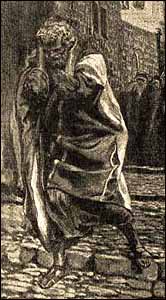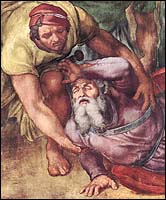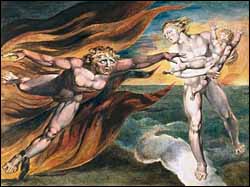Free E-Mail
Bible Studies
Beginning the Journey (for new Christians). en Español
Old Testament
Abraham
Jacob
Moses
Joshua
Gideon
David, Life of
Elijah
Psalms
Solomon
Songs of Ascent (Ps 120-135)
Isaiah
Advent/Messianic Scriptures
Daniel
Rebuild & Renew: Post-Exilic Books
Gospels
Christmas Incarnation
(Mt, Lk)
Sermon on the Mount
(Mt 5-7)
Mark
Luke's
Gospel
John's Gospel
7 Last Words of Christ
Parables
Jesus and the Kingdom
Resurrection
Apostle Peter
Acts
The Early Church
(Acts 1-12)
Apostle Paul
(Acts 12-28)
Paul's Epistles
Christ Powered Life (Rom 5-8)
1 Corinthians
2 Corinthians
Galatians
Ephesians
Vision for Church
(Eph)
Philippians
Colossians,
Philemon
1
& 2 Thessalonians
1 & 2 Timothy,
Titus
General Epistles
Hebrews
James
1 Peter
2 Peter, Jude
1, 2, and 3 John
Revelation
Revelation
Conquering Lamb of Revelation
Topical
Glorious Kingdom, The
Grace
Great Prayers
Holy Spirit, Disciple's Guide
Humility
Lamb of God
Listening for God's Voice
Lord's Supper
Names of God
Names of Jesus
Christian Art
About Us
Podcasts
Contact Us
Dr. Wilson's Books
Donations
Watercolors
Sitemap
 Detail from James J. Tissot (1836-1902), "Peter Went Out and Wept Bitterly" (1886-96), watercolor. Larger image. |
1 Do you not know, brothers -- for I am speaking to men who know the law -- that the law has authority over a man only as long as he lives? 2 For example, by law a married woman is bound to her husband as long as he is alive, but if her husband dies, she is released from the law of marriage. 3 So then, if she marries another man while her husband is still alive, she is called an adulteress. But if her husband dies, she is released from that law and is not an adulteress, even though she marries another man.
4 So, my brothers, you also died to the law through the body of Christ, that you might belong to another, to him who was raised from the dead, in order that we might bear fruit to God. 5 For when we were controlled by the sinful nature, the sinful passions aroused by the law were at work in our bodies, so that we bore fruit for death. 6 But now, by dying to what once bound us, we have been released from the law so that we serve in the new way of the Spirit, and not in the old way of the written code.
7 What shall we say, then? Is the law sin? Certainly not! Indeed I would not have known what sin was except through the law. For I would not have known what coveting really was if the law had not said, "Do not covet." 8 But sin, seizing the opportunity afforded by the commandment, produced in me every kind of covetous desire. For apart from law, sin is dead. 9 Once I was alive apart from law; but when the commandment came, sin sprang to life and I died. 10 I found that the very commandment that was intended to bring life actually brought death. 11 For sin, seizing the opportunity afforded by the commandment, deceived me, and through the commandment put me to death. 12 So then, the law is holy, and the commandment is holy, righteous and good.
13 Did that which is good, then, become death to me? By no means! But in order that sin might be recognized as sin, it produced death in me through what was good, so that through the commandment sin might become utterly sinful.
14 We know that the law is spiritual; but I am unspiritual, sold as a slave to sin. 15 I do not understand what I do. For what I want to do I do not do, but what I hate I do. 16 And if I do what I do not want to do, I agree that the law is good. 17 As it is, it is no longer I myself who do it, but it is sin living in me. 18 I know that nothing good lives in me, that is, in my sinful nature. For I have the desire to do what is good, but I cannot carry it out. 19 For what I do is not the good I want to do; no, the evil I do not want to do--this I keep on doing. 20 Now if I do what I do not want to do, it is no longer I who do it, but it is sin living in me that does it.
21 So I find this law at work: When I want to do good, evil is right there with me. 22 For in my inner being I delight in God's law; 23 but I see another law at work in the members of my body, waging war against the law of my mind and making me a prisoner of the law of sin at work within my members. 24 What a wretched man I am! Who will rescue me from this body of death? 25 Thanks be to God -- through Jesus Christ our Lord! So then, I myself in my mind am a slave to God's law, but in the sinful nature a slave to the law of sin. (Romans 7:7-25)
| Big Concept 5. The law, the knowledge of right and wrong is good, but it doesn't have the power to keep us from sinning. Even will power is inadequate to keep us from sin. We only end up frustrated. The problem lies with our corrupt human nature. Fortunately, there is help in the Spirit. |
Romans 7 is a troubling chapter. We can see ourselves in it too clearly sometimes -- struggling with temptation and sin at the same time as we love God. How do we understand this? We'll be looking at the entire chapter in this lesson, so we'll be moving faster than usual over most of it. Here's how the chapter is structured:
- Our Release from the Law to Serve in the Spirit (7:1-6)
- The Holiness and Righteousness of the Law (7:7-13)
- Our Failure in the Flesh -- the Sinful Nature -- to Fulfill the Law (7:14-25)
Notice that the entire chapter is exploring the Christian's relationship to the law. To practicing Jews, keeping the law was the center of their faith. Paul, educated as a strict Pharisee, had lived his whole life in law-keeping. This was his pedigree:
"Circumcised on the eighth day, of the people of Israel, of the tribe of Benjamin, a Hebrew of Hebrews; in regard to the law, a Pharisee; as for zeal, persecuting the church; as for legalistic righteousness, faultless." (Philippians 3:5-6)
"According to the strictest sect of our religion, I lived as a Pharisee." (Acts 26:5)
 Detail of Michelangelo, "Conversion of Saint Paul" (1542-1545), Fresco, Pauline Chapel, Vatican. Full painting. |
Paul was the epitome of the righteous Jew. But then he met Christ the Messiah on the road to Damascus and his entire perspective changed. His means of righteousness turned out to be empty and self-serving. In all his zeal for the law he had missed the Messiah. So what is the place of the law for the believer? Is Paul proclaiming a kind of antinomianism, that is, rejecting obedience to the law?
Release from the Law: A Marriage Metaphor (7:1-4)
The first six verses give us a metaphor from the marriage relationship to illustrate that we have been released from the law in the same way that a woman is released from marriage when her husband dies:
1 "Do you not know, brothers -- for I am speaking to men who know the law -- that the law has authority over a man only as long as he lives? 2 For example, by law a married woman is bound to her husband as long as he is alive, but if her husband dies, she is released from the law of marriage. 3 So then, if she marries another man while her husband is still alive, she is called an adulteress. But if her husband dies, she is released from that law and is not an adulteress, even though she marries another man." (7:1-3)
Paul's chief point from this metaphor is found in verse 4.
"So, my brothers, you also died to the law through the body of Christ, that you might belong to another, to him who was raised from the dead, in order that we might bear fruit to God." (7:4)
Remember in Romans 6:1-5 how we are united to Christ by baptism, and thus share in Christ's death? Verse 4 here emphasizes that through Christ's physical death, we also died to the rule of law. Before the Messiah, the law was God's primary tool to teach and shape his people. In Galatians, Paul compares the role of the law to that of a disciplinarian or guide for a child (paidagōgos), though the word doesn't really mean "teacher" here122:
"So the law was put in charge to lead us to Christ that we might be justified by faith. Now that faith has come, we are no longer under the supervision of the law." (Galatians 3:24-25, NIV)
The Era of the Spirit (7:5-6)
Now that Messiah has come, we have entered the era of the Spirit and faith, as we see especially in verse 6:
5 "For when we were controlled by the sinful nature, the sinful passions aroused by the law were at work in our bodies, so that we bore fruit for death. 6 But now, by dying to what once bound us, we have been released from the law so that we serve in the new way of the Spirit, and not in the old way of the written code." (7:5-6)
In verse 6, Paul contrasts two paths, the new and the old:
Paul only hints of the life of the Spirit here, but he spells it out in much
greater detail in the first part of Romans 8.
The Relationship of the Flesh to the Law (7:5)
The rest of Romans 7 is devoted to exploring the relationships between the flesh, the old nature, and the law -- without the Spirit to bring life. Let's look at verse 5 once again:
"For when we were controlled by the sinful nature, the sinful passions aroused by the law were at work in our bodies, so that we bore fruit for death." (7:5)
This verse surfaces two important concepts:
- Sinful nature or flesh
- Sinful passions
and raises two questions:
- What is the flesh and how does it control us?
- How does the law, since it is holy, arouse sinful passions in us?
Understanding the Flesh, the Sinful Nature
 William Blake (1757-1827) often illustrated spiritual struggle. Here is his "Good and Evil Angels Struggling for Possession of a Child" (1795/? circa 1805). The blond figure is the Good Angel; the dark figure clasping at the child is Evil. (Color print finished in ink and watercolor on paper, 445 x 594 mm, Tate Gallery.) Larger image. |
"Sinful nature" (NIV) or "flesh" (KJV, NRSV, NASB), sarx in Greek, is a key term in Romans 7 and 8. But at first glance it is confusing. This is because the word "flesh" is used in at least four different ways: The first three are morally neutral:
- Physical matter that makes up human bodies.
- The human body itself.
- A human being, the human race.
But perhaps Paul's most characteristic use of sarx is with reference to
- The rebellious human nature, human value systems that stand in opposition to God's value system.125 Here flesh is "the body which is dominated by sin" ... "the unregenerate and sinful state."126 The NIV nearly consistently translates this meaning of flesh as "sinful nature."
The word appears with this fourth definition in Romans 6:19; 7:5, 18, 25, and 13 times in the first 13 verses of Romans 8. It is central to our study.
Paul teaches that the fallen human nature is inherently rebellious against God. We inherited this nature from Adam and, unfortunately, it was not eradicated when we became Christians. It is still within us, but we are no longer forced to follow its dictates. As we will see in Romans 8, we now have the Spirit within us who is strong enough to keep the flesh from getting the upper hand. What kinds of things does the flesh cause us to do?
"The acts of the sinful nature are obvious: sexual immorality, impurity and debauchery; idolatry and witchcraft; hatred, discord, jealousy, fits of rage, selfish ambition, dissensions, factions and envy; drunkenness, orgies, and the like." (Galatians 5:19-21)
The flesh motivates the selfishness we sometimes feel, the whining about our circumstances, the petty jealousies, the jockeying for power in the office and in our marriages, the lure of pornography, the desire for money and possessions, and all the rest. In 7:14-25 we'll explore our struggle with the flesh. In 8:1-17 we'll see how the Spirit can enable us to live free of the flesh.
| Q1. (Romans 7:5) Paul uses the word "flesh" (or NIV
"sinful nature") many times in chapters 7 and 8. In your own words, what
does Paul mean by "flesh" in these verses? http://www.joyfulheart.com/forums/index.php?showtopic=810
|
Waging War against Our Souls (7:23)
As we seek to understand the flesh, it's important to see that this is no benign competition. It is war against our spirits. Consider verse 23:
"I see another law at work in the members of my body, waging war against the law of my mind and making me a prisoner of the law of sin at work within my members." (7:23)
This term "waging war" (NIV, NASB), "warring" (KJV), "at war" (NRSV) is antistrateuomai, "to be at war with,"127 from anti, "over against, hostile opposition" + "strateuō, "to engage in a conflict, wage battle, fight."128 In chapter 8 we read, "The mind that is set on the flesh is hostile to God" (8:7, NRSV). This concurs with several other New Testament references that characterize the Christian life as conflict:
"[The flesh and the Spirit] are in conflict129with each other." (Galatians 5:17)
"What causes fights and quarrels among you? Don't they come from your desires130 that battle (strateuō) within you?" (James 4:1)
"Dear friends, I urge you, as aliens and strangers in the world, to abstain from sinful desires,131 which war (strateuō) against your soul." (1 Peter 2:11)
Note: The scope of spiritual warfare is the world, the flesh, and the devil. These verses refer primarily to the war with the flesh, though these realms do interact with each other.
If we pamper the flesh and give into its desires, we are merely feeding a monster that will grow that much stronger. The flesh is the enemy of our soul and wages war against it. The answer to the flesh, of course, is the power of the Spirit, which we'll explore fully in Romans 8.
 Rembrandt, "Moses with the Tablets" (1659), oil on canvas, 168.5 × 136.5 cm, Gemäldegalerie, Berlin. Larger image. |
The Law
But first let's clarify what Paul means by the law. The Greek word is nomos used in the sense of a "constitutional or statutory legal system, law," specifically, of the law that Moses received from God132 and which was binding upon observant Jews. For Christians "the law" consists of the moral code we have derived from the teachings of the Old and New Testaments, a clear sense of right and wrong written on our consciences by our parents, our preachers, and our encounters with the Scriptures. In this passage, Paul traces the function of the law:
- The law reveals sin. (7:7)
- The law provokes sin. (7:5, 8)
- The law condemns sin (7:9-11)
So how does the law enflame and promote sin in us?
"For when we were controlled by the sinful nature, the sinful passions aroused by the law were at work in our bodies, so that we bore fruit for death." (7:5)
Paul develops this thought in the next few verses:
The Law Reveals the Nature of Sin (7:7)
"What shall we say, then? Is the law sin? Certainly not! Indeed I would not have known what sin was except through the law. For I would not have known what coveting really was if the law had not said, 'Do not covet.'" (7:7)
Sin, that is, rebellion against God's commands and his holiness, existed before the law was given at Mt. Sinai, but was "not taken into account" (5:12) as transgression of the law at that time. Yet, even then, the flesh and sin were fully engaged. When the law was given, however, it cast a spotlight on sin. What was considered perhaps as bad behavior or unkind is now seen clearly as a sin against God. Covetousness is now clearly seen as selfish grasping, at the root of many sins.
The word "covetousness" is Greek epithumia, "a great desire for something, desire, longing, craving." Not all desire is wrong, of course; the word can be used both positively and negatively. Here the word carries the meaning, "a desire for something forbidden or simply inordinate, craving, lust."133 Of course, Paul is referring to the 10th commandment (Exodus 20:17; Deuteronomy 5:21), where what is condemned is nursing a longing for that which belongs to someone else and which one cannot legitimately own. It is related to, but not quite the same as, greed, which is the insatiable desire for more.134
When we are blissfully ignorant of our sins, that doesn't keep them from being wrong or harmful to ourselves and others. But when the Bible names our sins, we begin to notice them and be able to understand them. It's like trying to study medicine without first studying anatomy and finding names for all the muscles, bones, and tissues of the human body. The process of naming forces us to notice differences and make distinctions, and ignorance departs. Knowing something is wrong is the first step towards truth.
| Q2. (Romans 7:7-8) The law reveals sin for what it is.
Why wouldn't we be better off just not knowing that we should not covet,
for example? Why does the flesh respond to being told "Do not covet" by
coveting all the more? http://www.joyfulheart.com/forums/index.php?showtopic=811
|
Sin Feeds Off of the Law's Commands (7:8-12)
But just knowing something is sinful doesn't solve the problem.
8 "But sin, seizing the opportunity afforded by the commandment, produced in me every kind of covetous desire. For apart from law, sin is dead. 9 Once I was alive apart from law; but when the commandment came, sin sprang to life and I died. 10 I found that the very commandment that was intended to bring life actually brought death. 11 For sin, seizing the opportunity afforded by the commandment, deceived me, and through the commandment put me to death. 12 So then, the law is holy, and the commandment is holy, righteous and good." (7:8-12)
Here's the paradox. The "the law is holy and the commandment is holy, righteous, and good" (7:12). But somehow the law seems to be hijacked by sin, so that knowing something is wrong seems to makes us want it more. We want what we cannot have! The problem is not in the law, Paul concludes, but in us.
Paul's summary transition in Romans 8 clarifies this point:
"For what the law was powerless to do in that it was weakened by the sinful nature, God did by sending his own Son...." (Romans 8:3)
When we are young and foolish we imagine perhaps that education will take care of all of society's ills. Oh, yes, education is a good thing. It certainly helps us. But education -- or, in this case, knowing that something is wrong -- doesn't deal with the problem with the human heart.
| Q3. (Romans 7:12; 8:3) What does the law do well? What
does it do poorly? Why is the law (knowing right and wrong) powerless to
save us? What is the problem here? http://www.joyfulheart.com/forums/index.php?showtopic=812
|
The Corrupt Heart of Man -- Total Depravity
Jeremiah put it this way:
"The heart is deceitful above all things and beyond cure. Who can understand it?" (Jeremiah 17:9)
Man in his present fallen state is not basically good, the Scripture teaches. He is deceitful and conniving. Yes, there is good in him -- the remnant of God's image in which he was formed. But the good is corrupted. No part of man is any longer perfectly good. All is a mixture of good and evil. And certainly man's "flesh" is corrupt: "I know that nothing good lives in me, that is, in my sinful nature (flesh, sarx)" (7:18).
All is somewhat corrupt and therefore, even the "good" in us cannot be trusted. Jesus recognized this when he taught on the heart or core of man:
"The things that come out of the mouth come from the heart, and these make a man 'unclean.' For out of the heart come evil thoughts, murder, adultery, sexual immorality, theft, false testimony, slander. These are what make a man 'unclean.'" (Matthew 15:18-20a)
Of course, this is just what Paul is teaching about the flesh. Theologians have framed this as the Doctrine of Total Depravity. Not that man has absolutely no good in him. But that in every aspect man is flawed. Even the good that a person may intend may come from mixed motives, etc.
"That Saved a Wretch Like Me"
Modern man resists such a concept. We look at the lyrics of "Amazing Grace" and cringe at the line:
"Amazing grace, how sweet the sound
That saved a wretch like me...."
Actually, that line draws from our passage: "What a wretched man I am!" (7:24a). The adjective is talaipōros, "miserable, wretched, distressed."135 We wince.
 John Newton (1725-1807), line engraving (1808) by Joseph Collyer the Younger (1788), after portrait by John Russell. National Portrait Gallery, London. |
We would much rather believe that we are basically good with a little corruption thrown in -- but fixable with some effort. This is much more in line with an American ethos of hard work, self-help, and pulling ourselves up by our own bootstraps. Teaching that the heart is deceitful is uncomplimentary to us, to say the very least. In fact, it is an insult to our dignity!
Our discomfort is evidence of our own naïveté, our own obtuseness about our state, our own blindness to the degradation of the sin we tolerate in our lives.
John Newton, who wrote "Amazing Grace," was under no such illusions. He had been redeemed from some very low places in his younger life at sea, describing himself as "once an infidel and libertine, a servant of slaves in Africa." As a slave trader and finally the captain of a slave ship, he knew something about what unregenerate man was capable of.
Those who believe that obedience to the law can save them from eternal punishment -- both in ancient Judaism and in modern legalistic Christianity -- inevitably underestimate the insidiousness of the flesh, of the human heart. We are fatally flawed. And the law, as good as it is, cannot save us.
| Q4. (Jeremiah 17:9; Matthew 15:18-20; Romans 7:24) What
is the doctrine of "total depravity"? Put it in your own words. Does it
mean that none of God's original goodness shows through? Then what does
it mean? Why does modern man tend to believe that man is basically good?
How does this differ from what the Bible teaches? http://www.joyfulheart.com/forums/index.php?showtopic=813
|
The Law Demonstrates the Evil of Sin (7:13)
So what good is the law?
"Did that which is good, then, become death to me? By no means! But in order that sin might be recognized as sin, it produced death in me through what was good, so that through the commandment sin might become utterly sinful." (7:13)
Earlier, Paul had introduced the same idea.
"The law was added so that the trespass might increase. But where sin increased, grace increased all the more." (5:20)
The law puts sin in sharp contrast so we cannot fail to understand our own sinfulness. So long as we are under the illusion that we can save ourselves, we aren't seeking a Savior.
Are Christians Expected to Keep the Law?
What is the place of the law in Christian discipleship, now that Messiah has come?
Is the Law still binding on Christians? Are we expected still to obey it? John Stott makes helpful distinctions between three approaches to the law:
- Legalism
- Antinomianism (lawlessness)
- Law-fulfilling freedom
He says, "Legalists fear the law and are in bondage to it. Antinomians hate the law and repudiate it. Law-abiding free people love the law and fulfill it."136
Paul has demonstrated that the law is holy, but not powerful enough to change us. The problem is our own inherent sinfulness and weakness.
The resolution is that we are no longer forced to obey the law as slaves are forced to obey a master. We are free now to serve another master -- a living One. We fulfill the law by yielding to the Holy Spirit whose fruit in our lives demonstrates Christ's working: love, joy, peace, patience, kindness, goodness, faithfulness, gentleness, and self-control (Galatians 5:22-23). As we'll see in Romans 8, the Spirit gives us the power to live holy lives.
Who Is the "I" (7:14-25)
But Paul is not finished. He details the struggle of the conscience and the will in most personal terms. Of whom is he speaking? Who is the "I" in these verses? There are three theories:
- Paul's pre-conversion autobiography. (Paul)
- Of people in general. (Adam)
- Of the Jewish people in particular. (Israel)
The struggle seems most personal in verses 14-25:
14 "We know that the law is spiritual; but I am unspiritual, sold as a slave to sin. 15 I do not understand what I do. For what I want to do I do not do, but what I hate I do. 16 And if I do what I do not want to do, I agree that the law is good. 17 As it is, it is no longer I myself who do it, but it is sin living in me. 18 I know that nothing good lives in me, that is, in my sinful nature. For I have the desire to do what is good, but I cannot carry it out. 19 For what I do is not the good I want to do; no, the evil I do not want to do -- this I keep on doing. 20 Now if I do what I do not want to do, it is no longer I who do it, but it is sin living in me that does it.
21 So I find this law137 at work: When I want to do good, evil is right there with me. 22 For in my inner being I delight in God's law; 23 but I see another law at work in the members of my body, waging war against the law of my mind and making me a prisoner of the law of sin at work within my members. 24 What a wretched man I am! Who will rescue me from this body of death? 25 Thanks be to God -- through Jesus Christ our Lord! So then, I myself in my mind am a slave to God's law, but in the sinful nature a slave to the law of sin." (Romans 7:14-25)
I think Stott may be right when he says:
"Perhaps Paul is both telling his own story and universalizing it. In brief, his experience (the sequence of comparative innocence, law, sin, and death), though uniquely his own, is also everybody's, whether Adam's in the garden, Israel's at the mountain, or, for that matter, ours today."138
Is this "I" Regenerate or Unregenerate?
If so, is Paul speaking of a time prior to his conversion when he was unregenerate, or of a period after his conversion.
- The Greek Fathers from Origin on concluded that here Paul was impersonating an unregenerate person, because Paul, as a mature and regenerate believer, could not describe himself as "sold as a slave to sin" (vs. 14c).
- St. Augustine decided that Paul is writing as a truly regenerate and even mature believer. He sees several characteristics: (1) Paul sees himself as unspiritual (7:14b), nothing good lives in him. Only believers think and speak of themselves in self-disgust and self-despair. (2) He loves the law. This is not the language of the unregenerate. (3) Finally, he longs for final deliverance.139
But perhaps neither of these approaches quite works. As Stott analyzes it:
- The "I" is regenerate, he loves God's law and longs to submit to it.
- But he is not a normal, healthy, mature believer, since he is
still a slave to and prisoner of sin. He hasn't experienced the promised
victory that Paul writes of in Galatians:
"For the sinful nature desires what is contrary to the Spirit, and the Spirit what is contrary to the sinful nature. They are in conflict with each other, so that you do not do what you want." (Galatians 5:17)
Rather, all he seems to experience is unremitting defeat. - He seems to know nothing of the Holy Spirit, either in
understanding or in experience.140
So who is this person? Stott concludes -- and I think he's right -- that the "wretched man" of verse 24 is typical of many Jewish Christians of Paul's day who were regenerated but not liberated. They were born again, but hadn't really learned to walk in the power of the Spirit, so as a result they ended up terribly frustrated. Stott sees the Old Testament saints in this category, too. They loved the law and were "born" or brought to faith by the Spirit, but not indwelt by the Spirit.141
I have no doubt that these verses describe Christians who haven't learned to walk by the Spirit. Living in the flesh is miserable.
| Q5. (Romans 7:14-25) Christians disagree about who is
the "I" in Romans 7. Is Paul referring to himself or others? What is
your opinion? (We won't all agree here, but we'll learn what the issues
are by taking and arguing for a position -- lovingly). http://www.joyfulheart.com/forums/index.php?showtopic=814
|
How Do We Apply Romans 7?
So how do we apply Romans 7 to our own lives and experiences?
First, Romans 7 should not be seen as the "normal Christian life"! It is common, but it is not to be considered the norm. The frustration with the flesh in Romans 7 is not complete without the victory of the powerful Spirit in Romans 8.
On the other hand, Romans 7 can help us diagnose some common aberrations of the Christian faith -- that is, trying to live the Christian life in our own strength. It can help us understand ourselves -- if that is our situation -- as well as other church members whose religion is essentially law, not gospel, and their life empowered by the flesh, not by the Spirit.
An emphasis on Christian holiness is a wonderful thing. But a certain type of holiness teaching that I've been exposed to tends to magnify the law and minimize the Spirit. There can be a kind of slavery to observing external church "rules" that, without the Spirit, doesn't make much sense.
Ultimately, as we'll see in Romans 8, the Christian life is not a defeated, miserable existence, leaving us unable to rise to our better selves. It is intended as an adventure, empowered by God's generous Spirit.
Who Will Deliver Me? (7:24-25)
24 "What a wretched man I am! Who will rescue me from this body of death? 25 Thanks be to God -- through Jesus Christ our Lord! So then, I myself in my mind am a slave to God's law, but in the sinful nature a slave to the law of sin." (Romans 7:24-25)
 Available in paperback, Kindle, and PDF book formats. |
Paul concludes this chapter -- though, of course, when he wrote it there were no chapter divisions -- with a summary of his thought. He sees himself as schizophrenic:
- "In my mind," nous, "the faculty of intellectual perception, mind, intellect,"142 he serves God.
- "In the flesh" or "sinful nature" (sarx) he serves sin.
Who will deliver me? he asks. The answer: Jesus Christ our Lord. Praise God that there is a Deliverer from this miserable state of Romans 7. His name is Jesus and he has sent his Holy Spirit that you, dear reader, can move to a much more blessed and enjoyable Christian life. That's what we'll explore in the next lesson.
Prayer
Father, I know that sometimes I've wallowed in despair over wanting to live like a Christian and then sinning -- again. Thank you for forgiveness in Christ. And thank you that there is something better. Help me to live by the Spirit and I pray for each person who reads this that he or she will also receive your power to live. Help us -- and thank you for your help! In Jesus' name, I pray. Amen.
Big Concept
The law, the knowledge of right and wrong is good, but it doesn't have the power to keep us from sinning. Even will power is inadequate to keep us from sin. We only end up frustrated. The problem lies with our corrupt human nature. Fortunately, there is help in the Spirit.
Key Verses
"Did that which is good, then, become death to me? By no means! But in order that sin might be recognized as sin, it produced death in me through what was good, so that through the commandment sin might become utterly sinful." (Romans 7:13)
"What a wretched man I am! Who will rescue me from this body of death? Thanks be to God--through Jesus Christ our Lord! So then, I myself in my mind am a slave to God's law, but in the sinful nature a slave to the law of sin." (Romans 7:24-25)
References
Copyright © 2025, Ralph F. Wilson. <pastor![]() joyfulheart.com> All rights reserved. A single copy of this article is free. Do not put this on a website. See legal, copyright, and reprint information.
joyfulheart.com> All rights reserved. A single copy of this article is free. Do not put this on a website. See legal, copyright, and reprint information.
 |

|
In-depth Bible study books
You can purchase one of Dr. Wilson's complete Bible studies in PDF, Kindle, or paperback format -- currently 48 books in the JesusWalk Bible Study Series.
Old Testament
- Abraham, Faith of
- Jacob, Life of
- Moses the Reluctant Leader
- Joshua
- Gideon
- David, Life of
- Elijah
- Psalms
- Solomon
- Songs of Ascent (Psalms 120-134)
- Isaiah
- 28 Advent Scriptures (Messianic)
- Daniel
- Rebuild & Renew: Post-Exilic Books
Gospels
- Christmas Incarnation (Mt, Lk)
- Sermon on the Mount (Mt 5-7)
- Luke's Gospel
- John's Gospel
- Seven Last Words of Christ
- Parables
- Jesus and the Kingdom of God
- Resurrection and Easter Faith
- Apostle Peter
Acts
Pauline Epistles
- Romans 5-8 (Christ-Powered Life)
- 1 Corinthians
- 2 Corinthians
- Galatians
- Ephesians
- Philippians
- Colossians, Philemon
- 1 & 2 Thessalonians
- 1 &2 Timothy, Titus
General Epistles
Revelation
Topical
